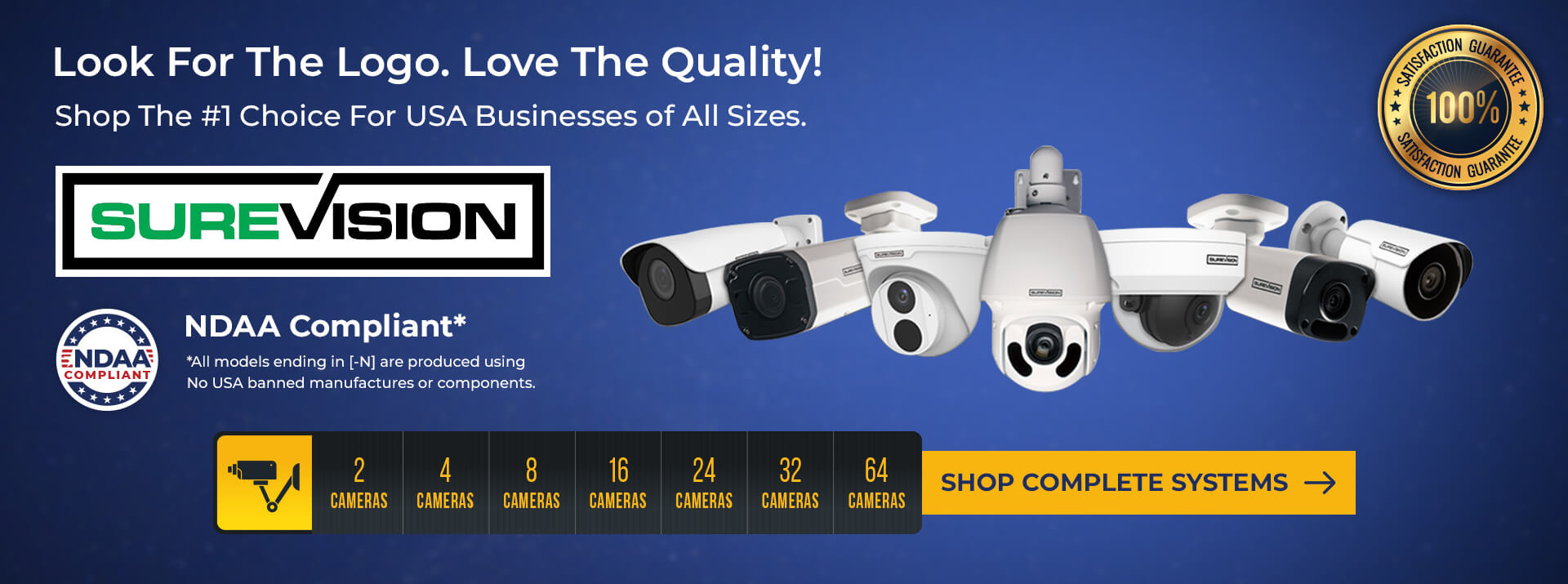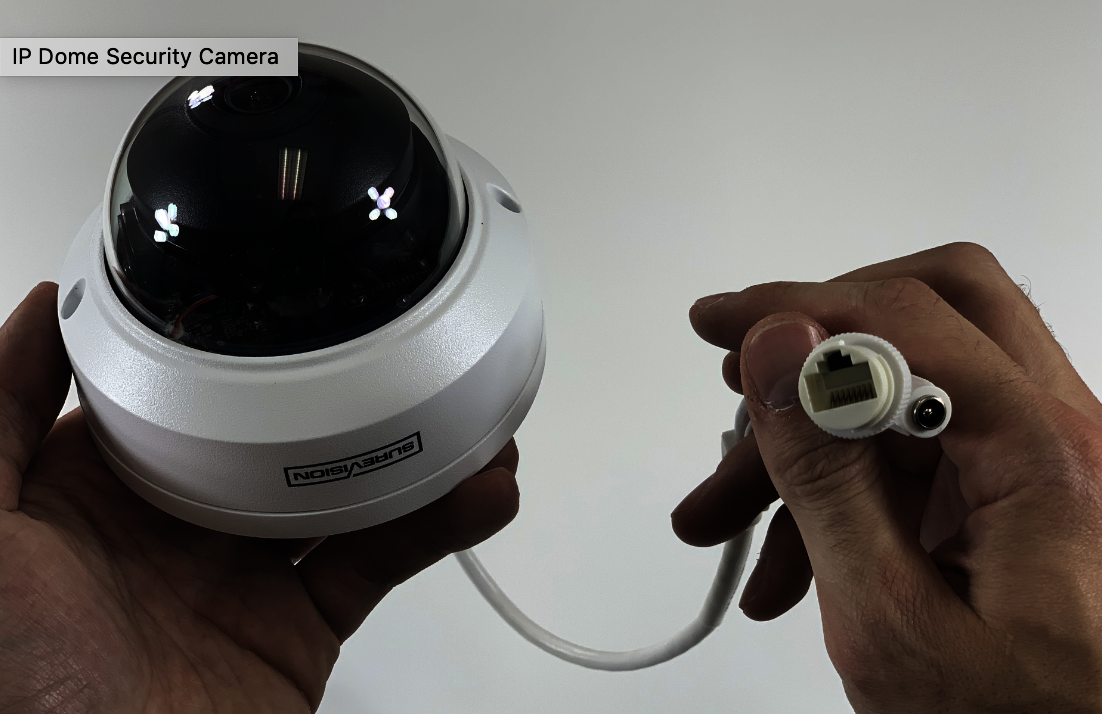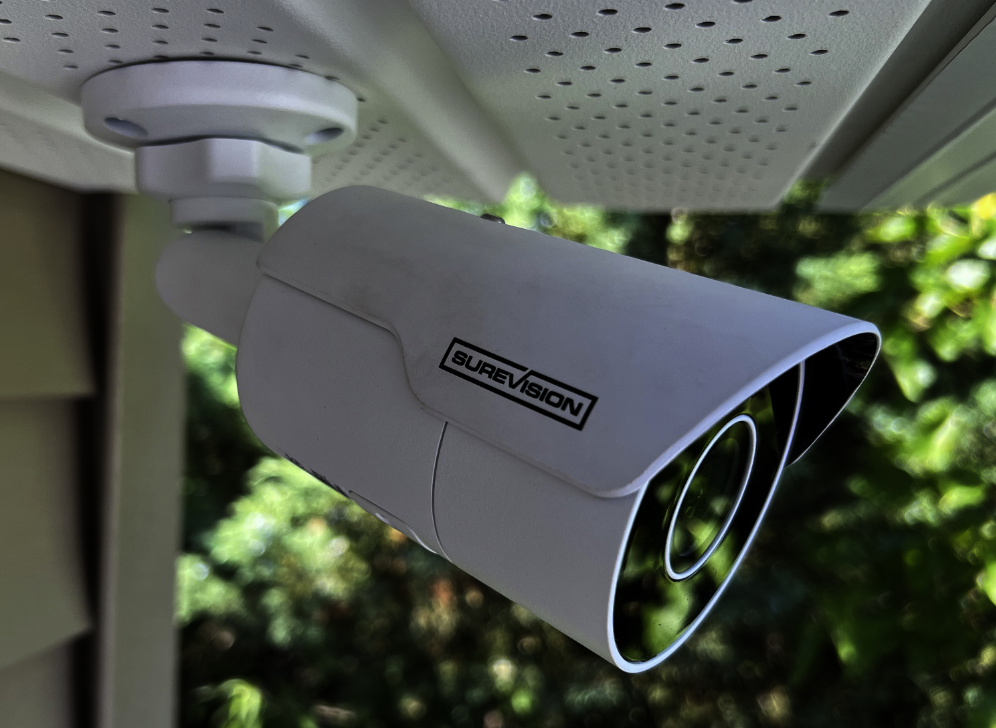Dome vs. Bullet Security Cameras - How to Choose
Posted by Gregory DeRouanna on Aug 10, 2024
Dome vs. Bullet Security Cameras: Which One is Right for Your Needs?
In today's world, security is a top priority for businesses, government institutions, and homeowners alike. With the rise of technology, security cameras have become an essential tool in safeguarding properties and deterring potential threats. However, when it comes to choosing the right type of security camera, many people find themselves facing a common question: dome cameras or bullet cameras? The truth is at CCTV Security Pros we sell a lot of both camera types.
Both dome and bullet cameras have their own unique features and advantages, making the decision-making process a bit challenging. We will explore the differences between dome and bullet security cameras, their pros and cons, and help you determine which one might be the best fit for your specific security needs.
Understanding Dome Cameras
What are Dome Cameras?
Dome cameras are named for their distinctive dome-shaped housing. These cameras are typically mounted on ceilings or walls and are designed to blend seamlessly with their surroundings. The camera itself is housed within a protective dome, which can be clear or tinted.
Advantages of Dome Cameras
- Discreet appearance: Dome cameras are less noticeable than their bullet counterparts, making them ideal for environments where a subtle security presence is preferred.
- Wide coverage area: Some types of dome cameras, such as PTZ dome cameras can rotate 360 degrees, providing a panoramic view of the surroundings.
- Vandal-resistant: The dome enclosure offers an extra layer of protection against tampering or vandalism.
- Versatile installation: Dome cameras can be easily mounted on ceilings or walls, making them suitable for various indoor and outdoor locations.
Disadvantages of Dome Cameras
- Limited night vision distance range: Due to their compact design, dome cameras may have a more limited range compared to bullet cameras.
- Potential glare: The dome enclosure can sometimes cause glare or reflection, which may affect image quality in certain lighting conditions.
- Maintenance challenges: Cleaning the dome enclosure can be more difficult, especially for outdoor installations where dirt and debris can accumulate.
Understanding Bullet Cameras
What are Bullet Cameras?
Bullet cameras are named for their cylindrical shape, which resembles a bullet or lipstick tube. These cameras are typically mounted on walls or ceilings and are known for their long-range capabilities and focused field of view.
Advantages of Bullet Cameras
- Long-range visibility: Bullet cameras excel at capturing clear images over long distances, making them ideal for monitoring large areas like parking lots or building perimeters.
- Easy installation: The straightforward design of bullet cameras makes them relatively easy to install and adjust.
- Built-in IR illuminators: Many bullet cameras come equipped with infrared (IR) illuminators, enhancing their night vision capabilities.
- Weather-resistant: Bullet cameras are often designed with robust housings that can withstand various weather conditions, making them suitable for outdoor use.
Disadvantages of Bullet Cameras
- More noticeable: The prominent design of bullet cameras makes them more visible, which can be a deterrent but may also be less aesthetically pleasing in some environments.
- Limited viewing angles: Bullet cameras typically have a fixed field of view and do not rotate like PTZ cameras , which may require multiple cameras to cover an extremely wide area.
- Potential for tampering: The protruding design of bullet cameras makes them more susceptible to tampering or being knocked out of position.
Comparing Dome and Bullet Cameras
Image Quality
Both dome and bullet cameras can provide excellent image quality, depending on the specific model and features. However, bullet cameras often have an edge when it comes to long-range visibility and clarity, especially in outdoor settings.
Night Vision Capabilities
While both types of cameras can offer night vision functionality, bullet cameras typically have an advantage in this area. Their design allows for larger IR illuminators, which can provide better visibility in low-light conditions.
Weather Resistance
Both our dome and bullet cameras are designed for outdoor use.
Aesthetic Considerations
Dome cameras are generally considered more aesthetically pleasing due to their discreet design. They can blend in with various architectural styles and are less likely to draw attention. Bullet cameras, on the other hand, are more noticeable and may not be suitable for environments where a subtle security presence is desired.
Installation and Maintenance
Bullet cameras are typically easier to install and maintain due to their straightforward design. Dome cameras may require more careful handling during installation to avoid damaging the dome enclosure. Additionally, cleaning and maintaining dome cameras can be more challenging, especially in outdoor settings where dirt and debris can accumulate on the dome surface.
Choosing the Right Camera for Your Needs
Considerations for Businesses
For businesses, the choice between dome and bullet cameras often depends on the specific security requirements and the nature of the environment:
- Retail stores: Dome cameras are often preferred for their discreet appearance and ability to monitor wide areas, such as shopping floors and checkout counters.
- Warehouses: Bullet cameras may be more suitable due to their long-range capabilities and ability to monitor large, open spaces.
- Office buildings: A combination of both dome and bullet cameras can provide comprehensive coverage, with dome cameras for indoor areas and bullet cameras for parking lots and building perimeters.
Considerations for Government Institutions
Government facilities often require high-level security measures and may benefit from a mix of both camera types:
- Public spaces: Dome cameras can be used for monitoring lobbies, hallways, and other indoor areas where discretion is important.
- Perimeter security: Bullet cameras are ideal for monitoring fence lines, parking areas, and other outdoor spaces that require long-range visibility.
- Critical infrastructure: A combination of both camera types can provide comprehensive coverage for sensitive areas and entry points.
Considerations for Homeowners
For residential use, the choice between dome and bullet cameras often comes down to personal preference and specific property characteristics:
- Indoor monitoring: Dome cameras are often preferred for indoor use due to their discreet appearance and ability to blend with home decor.
- Outdoor surveillance: Bullet cameras can be effective for monitoring driveways, backyards, and other outdoor areas, especially if long-range visibility is needed.
- Aesthetic concerns: Homeowners who prioritize a subtle security presence may prefer dome cameras, while those seeking a visible deterrent might opt for bullet cameras.
Conclusion
Choosing between dome and bullet security cameras ultimately depends on your specific needs, the environment you're monitoring, and your personal preferences. Both types of cameras have their strengths and weaknesses, and in many cases, a combination of both can provide the most comprehensive security coverage.
For businesses and government institutions, consider the nature of the spaces you need to monitor, the level of discretion required, and the range of visibility needed. A mix of dome cameras for indoor areas and bullet cameras for outdoor spaces often provides the best of both worlds.
Homeowners should think about their property layout, aesthetic preferences, and specific security concerns when making a decision. Don't hesitate to consult with a security professional who can assess your property and provide tailored recommendations.
Remember, the most effective security system is one that is properly installed, regularly maintained, and aligned with your specific security goals. Whether you choose dome cameras, bullet cameras, or a combination of both, investing in quality security cameras is a crucial step in protecting your property and ensuring peace of mind.







